Sources
- Wojciech Zaleski, Muzeum ONR
Wojciech Zaleski (1906 - 1961) was a Polish right-wing politician, co-founder of the National Radical Camp (1934), and activist of Confederation of the Nation.
Zaleski was born on 17 April 1906 in unknown location in Ukraine. He studied at Lwow University and Jagiellonian University, graduating in 1928. In 1931, at the age of 25, he was awarded the doctorate in law, and his field of expertise was economy. Zaleski wrote a number of articles about economy and society, his works were featured mostly in nationalistic press. In the late 1920s and early 1930s, he was an active member of the National Party (Poland). Disappointed with the party policies, on 14 April 1934 he co-founded the National Radical Camp (1934) (ONR), signing the historic Declaration of the ONR.
Since Zaleski was a renowned figure among Polish nationalists, he created economic program of the ONR. In 1937, he issued a manifesto “Poland Without Proletariat”, in which he wrote about the “third way”, beyond Capitalism and Communism. In 1938, he was named editor in chief of the popular right-wing daily ABC.
After the Invasion of Poland Zaleski was actively involved in the Polish resistance. He joined the radical organization Pobudka (Awakening), which in 1940 merged with some other groups, creating Confederation of the Nation (KN). Using nom de guerre Szarecki, he was one of leaders of the KN, responsible for propaganda. At the same time, he wrote for Polish underground press, publishing in 1942 a brochure “Economic Strength of New Poland” .
In final months of World War II, Zaleski escaped from Poland, avoiding possible NKVD arrest. In 1946, he became economic history lecturer at the UNRRA University in Munich, also publishing his own monthly Universum. In 1949, he wrote a book “Marshall Plan in the Economy of the Two Continents”, and in 1951 moved to Paris, where he was employed by the Economic Cooperation Administration. Zaleski remained a very active person: he was a member of the Centre of Research on Central Europe, and in 1952 wrote another book “The Party System”.
In 1954, Zaleski began cooperating with Polish language department of Radio Madrid. At the same time, he continued writing for several publications, such as Kultura, Horyzonty, Estudios Sobre el Communismo and Orientale Europea. Since Zaleski suffered from tuberculosis, he frequently had to visit different European spas. In 1961, his monumental book “A Thousand Years of Our Community. Social and Economic History of the Polish Nation” (“Tysiac lat naszej wspolnoty. Spoleczne i gospodarcze dzieje narodu polskiego w zarysie (Veritas, London 1961).
Wojciech Zaleski died on 23 October 1961 in Madrid, and was buried there.
National Democracy was a Polish political movement active from the second half of the 19th century under the foreign partitions of the country until the end of the Second Polish Republic. It ceased to exist after the German–Soviet invasion of Poland of 1939. In its long history, National Democracy went through several stages of development. Created with the intention of promoting the fight for Poland's sovereignty against the repressive imperial regimes, the movement acquired its right-wing nationalist character following the return to independence. A founder and principal ideologue was Roman Dmowski. Other ideological fathers of the movement included Zygmunt Balicki and Jan Ludwik Popławski.

National Rebirth of Poland, abbreviated to NOP, is an ultranationalist far-right political party in Poland registered by the District Court in Warsaw and National Electoral Commission. As of the 2015 election, the party had no seats in the Polish parliament. It was a member of the European National Front.

Edward Ochab was a Polish communist politician and top leader of Poland between March and October 1956.

The All-Polish Youth refers to two inter-linked Polish far-right ultranationalist youth organizations, with a Catholic-nationalist philosophy. Its agenda declares that its aim is "to raise Polish youth in a Catholic and patriotic spirit".

The Holy Cross Mountains Brigade was a controversial tactical unit of the Polish National Armed Forces established on 11 August 1944. It did not obey orders to merge with the Home Army in 1944 and was a part of the Military Organization Lizard Union faction. Its soldiers fought simultaneously with the Nazi Germany, the Soviet Union and the Polish communist underground, though it sometimes collaborated with the Nazis to further its anti-communist, anti-Jewish and totalitarian goals.
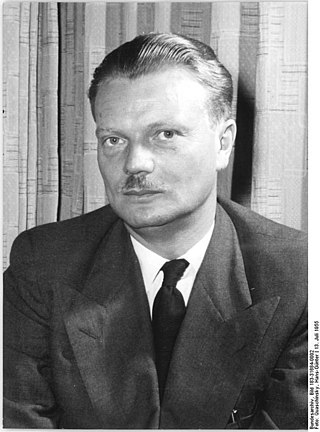
Bolesław Bogdan Piasecki, alias Leon Całka, Wojciech z Królewca, Sablewski was a Polish writer, politician and political theorist, during the war he was active in the anti-German and anti-Soviet armed underground. Initially of national radical views, he became associated after the war with the ruling Polish communists and led a group of lay Catholics who collaborated with the communist regime.
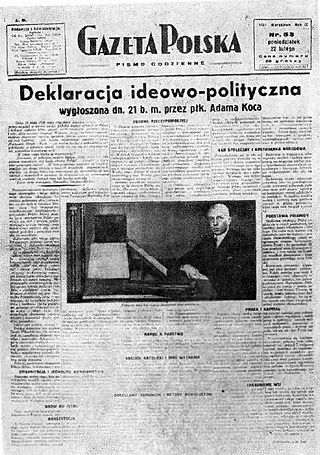
Obóz Zjednoczenia Narodowego was a Polish political party founded in 1937 by sections of the leadership in the Sanacja movement.


Władysław Konopczyński was a leading Polish historian and publisher of primary-source materials.
Camp of Great Poland was a far-right, nationalist political organization of National Democracy in interwar Poland.
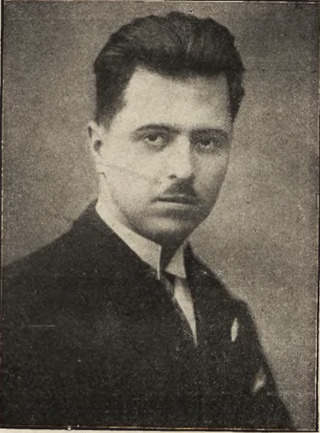
Jan Mosdorf, was a Polish right-wing politician, director of the nationalist organization All-Polish Youth and member of the far-right political party National Radical Camp (ONR). He also worked as a publicist, using the pseudonym Andrzej Witkowski. In 1943, Mosdorf was killed in the Auschwitz concentration camp.

The National Radical Camp refers to at least three groups that are fascist, far-right, and ultranationalist Polish organisations with doctrines stemming from pre-World War II nationalist ideology.

Confederation of the Nation was one of the Polish resistance organizations in occupied Poland during World War II. KN was created in 1940 by the far-right National Radical Camp Falanga (ONR-Falanga) political party from several smaller underground organizations, including the Secret Polish Army (TAP). In the political realm it was opposed to more centrist mainstream resistance organizations. It would never attract major support and would remain marginal, eventually partially merging with ZWZ around 1941 and finally joining Armia Krajowa around fall 1943.

Like in other nations across the world, there are several far-right organizations and parties operating in Poland.
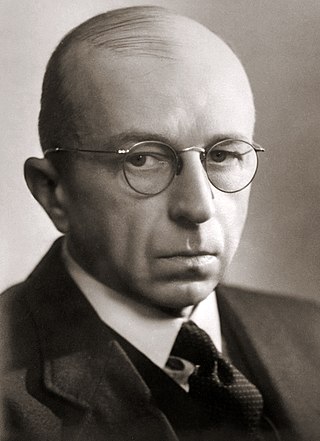
Adam Ignacy Koc was a Polish politician, MP, soldier, journalist and Freemason. Koc, who had several noms de guerre, fought in Polish units in World War I and in the Polish–Soviet War.
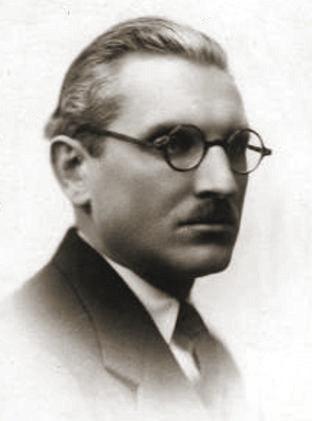
Adam Doboszyński was a soldier of the Polish Army, writer, engineer, and a social activist. Born in 1904 in Kraków, he was murdered by the Communist secret services in 1949, in the notorious Mokotów Prison in Warsaw.

The Confederation Liberty and Independence, frequently shortened to just Confederation, is a far-right political alliance in Poland. It was initially founded in 2018 as a political coalition for the 2019 European Parliament election in Poland, although it was later expanded into a political party. It won 11 seats in the Sejm after the 2019 Polish parliamentary election. Its candidate for the 2020 Polish presidential election was Krzysztof Bosak, who placed fourth among eleven candidates.

Jan Krzysztof Żaryn is a Polish historian, professor and politician, who was a Senator in the Senate of Poland from 2015 to 2019.

Władysław Jan Grabski was a Polish writer, publicist and poet. His work is embedded in the Catholic current. He wrote both historical novels related to the History of Poland as well as contemporary novels.

United Beyond Boundaries, known as Action of Disappointed Retirees and Pensioners until 2022 is a Polish political party founded in 2018. The party was created in February 2018 and formally registered six months later, in August 2018. The leader of the party is Wojciech Kornowski, a prominent member and founder of the nationalist communist organisation Patriotic Union "Grunwald". Kornowski was briefly the leader of democratic socialist National Party of Retirees and Pensioners in May 2012, but seceded from the party to create his own pensioner-oriented party Pensioners' Party of the Republic of Poland, which then became the Action of Disappointed Retirees and Pensioners in 2018. Since 2022, the party also leads an electoral committee "United Beyond Divisions".